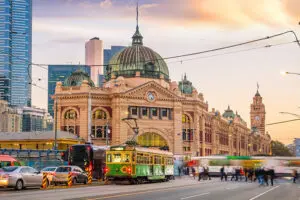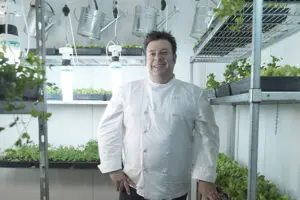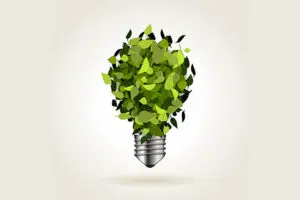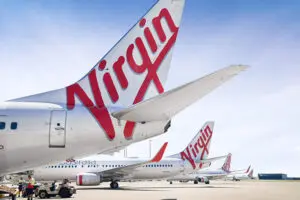With SAF able to make a significant dent in aviation emissions, the impact from the clean fuel investment could be game changing in helping bring down the carbon footprint of Australia’s business events industry, with some estimates attributing 80 per cent of event emissions to air travel.
The federal government has announced the decade-long Cleaner Fuels Program, which will support the production of low carbon liquid fuels in Australia, including SAF and renewable diesel.
“Making cleaner fuels here, from Australian feedstocks, creates the path for emissions reduction in sectors that are hardest to clean up, like plane travel and construction machines,” said Australia’s climate change and energy minister, Chris Bowen.
Renewable diesel could also drive down event emissions through the reduction of the carbon cost of transporting event supplies and delegates across Australia’s vast landscape.
SAF, which can be used in unmodified aircraft today, is expected to account for 65 per cent of the emissions reductions required for the global aviation industry to reach net zero by 2050, according to the International Air Transport Association (IATA).
However, there is no local production facilities to process feedstocks and output SAF, although there are some SAF production projects in the early stages of development.
This lack of local sustainable fuel saw Qantas import nearly two million litres of SAF earlier this year.
Both SAF and clean diesel can be made out of the likes of canola, sugar and waste, produced in Australia – in fact Australia already exports almost $4 billion of these feedstocks overseas every year.
The Clean Energy Finance Corporation forecasts Australia could have a low carbon fuel industry worth $36 billion by 2050.
Details of the grants to be made available through the Cleaner Fuels Program are expected to finalised by mid-next year, with funding applications to open next financial year and the first fuels made possible through the scheme to be ready to use by 2029.
“Low carbon liquid fuels are an enormous economic opportunity for Australia,” said Australia’s treasurer, Jim Chalmers.
“It’s about making Australians and our economy big beneficiaries of the global net zero transformation.
“Developing this industry has potential to make us an indispensable part of growing global net zero supply chains.
“This is a downpayment on developing an entirely new industry in Australia.
“From the farm to the refinery, from primary production to processing, this will create more jobs and more opportunities for Australian workers and businesses.
“It’s another way we’re helping Australians grasp the big benefits on offer in the transformation to cleaner and cheaper energy.”
In related news, today, the federal government set its 2035 climate target of a reduction in carbon emissions of between 62 per cent and 70 per cent based on 2005 emissions levels.




















